MATTA. Roberto Sebastian Matta, Gordon Matta-Clark e Pablo Echaurren Matta

Roberto Sebastian Matta, J'ai, j'eu, Fondazione Querini Stampalia, Venezia
Dal 28 May 2013 al 18 August 2013
Venezia
Luogo: Fondazione Querini Stampalia
Indirizzo: Castello 5252
Orari: 10-18 (chiuso lunedì)
Curatori: Danilo Eccher
Telefono per informazioni: +390412711411
E-Mail info: info@maggioregam.com
Sito ufficiale: http://www.querinistampalia.it
In concomitanza con la 55. Biennale di Venezia, la mostra vuole indagare le idee e i pensieri che si sono tramandati – attraverso le generazioni, il tempo e la geografia – da Roberto Sebastian Matta ai suoi figli Gordon Matta-Clark e Pablo Echaurren Matta.
Tre nomi, tre storie, tre paesi e un unico comun denominatore: l'arte. In concomitanza con la 55. Biennale di Arti Visive di Venezia e per la prima volta insieme, la mostra organizzata e prodotta dalla Galleria d'Arte Maggiore – G.A.M. di Bologna, riunisce negli spazi dell'area Scarpa della Fondazione Querini Stampalia, tre grandi protagonisti dell'arte internazionale. Gordon Matta-Clark e Pablo Echaurren Matta non hanno in comune solo il padre Roberto Sebastian Matta, figura storica che con le sue tele e le sue sculture ha preso parte al Surrealismo ed influenzato gli artisti americani dell'Espressionismo Astratto, ma con due stili espressivi differenti sono entrambi due personaggi di rilievo della scena artistica contemporanea.
La mostra, curata da Danilo Eccher, prende origine dall'opera di Roberto Sebastian Matta ed attraverso le opere dei suoi protagonisti percorre mezzo secolo di storia dell'arte, vissuta in tre paesi differenti: la Francia, gli Stati Uniti e l'Italia. Lo spaccato che ne deriva non è delimitato dalla loro storia familiare, per quanto eccezionale, ma amplia i propri confini all'ambiente culturale e politico in cui questi artisti sono stati profondamente coinvolti. Figli dello stesso padre, ma di madri differenti, sia Gordon che Pablo hanno avuto un rapporto conflittuale con la figura paterna ed attraverso l'arte entrambi hanno cercato un dialogo concettuale - impossibile nella vita privata - con Matta attraverso le loro opere pur maturando entrambi, ed ognuno a suo modo, linguaggi singolari e differenti. Se l'affinità con Matta-Clark è riconducibile a un livello formale, estetico-architettonico, in Echaurren l'affinitudine è da ricercarsi nel carattere più propriamente concettuale.
Il filo conduttore della loro opera a livello critico sarà svelato da Danilo Eccher solo pochi giorni prima dell'apertura al pubblico, ma ad una prima lettura emerge già come la socialità, la continua ricerca di un rapporto non solo di partecipazione del fruitore, ma di un suo coinvolgimento diretto o indiretto, fisico o mentale, culturale o sociale, interno o esterno all'opera sia presente nell'opera dei tre. Non è un caso infatti se alcuni definiscono le figure antropomorfe di Matta sia in pittura, sia in scultura, come "morfologie sociali", come una trasfromazione di passaggio tra i paesaggi interiori e il mondo esterno. Per Gordon la socialità è un fattore ancora più evidente, essendo la sua effimera arte basata sulla performance, sui "building cuts", gli edifici tagliati, trasformazioni sculturali di architetture preesistenti dove lo spettatore è invitato ad entrare per muoversi fisicamente ed emozionalmente in quegli spazi. Nella sua opera Matta-Clark crea un rapporto diretto con il fruitore, spesso basato sulla fiducia che costui deve devolvere all'operato dell'artista che come in Matta ha fondamenti architettonici. Mentre per quanto riguarda Pablo tutta la sua vita artistica è immersa nella socialità, nella sua esistenza quotidiana. E se è vero che le sue tele riportano al mondo dei fumetti, della musica, della street art, alla cultura di massa, è attraversando la sua iconografia Pop fatta di contiminazioni di generi che dialogano ora con il Dadaismo, ora con lo stesso Surrealismo, che l'artista propone con ironia attraverso l'apparizione di una natura familiare ed allo stesso tempo inquietante una critica diretta alla società dei consumi. Proprio come sembrano suggerire le figure antropomorfe e primitive presenti nei dipinti del padre. Non a caso l'opera di Matta mira anche a una riflessione sull'impatto che la tecnologia ha sull'esistenza umana.
Tre nomi, tre storie, tre paesi e un unico comun denominatore: l'arte. In concomitanza con la 55. Biennale di Arti Visive di Venezia e per la prima volta insieme, la mostra organizzata e prodotta dalla Galleria d'Arte Maggiore – G.A.M. di Bologna, riunisce negli spazi dell'area Scarpa della Fondazione Querini Stampalia, tre grandi protagonisti dell'arte internazionale. Gordon Matta-Clark e Pablo Echaurren Matta non hanno in comune solo il padre Roberto Sebastian Matta, figura storica che con le sue tele e le sue sculture ha preso parte al Surrealismo ed influenzato gli artisti americani dell'Espressionismo Astratto, ma con due stili espressivi differenti sono entrambi due personaggi di rilievo della scena artistica contemporanea.
La mostra, curata da Danilo Eccher, prende origine dall'opera di Roberto Sebastian Matta ed attraverso le opere dei suoi protagonisti percorre mezzo secolo di storia dell'arte, vissuta in tre paesi differenti: la Francia, gli Stati Uniti e l'Italia. Lo spaccato che ne deriva non è delimitato dalla loro storia familiare, per quanto eccezionale, ma amplia i propri confini all'ambiente culturale e politico in cui questi artisti sono stati profondamente coinvolti. Figli dello stesso padre, ma di madri differenti, sia Gordon che Pablo hanno avuto un rapporto conflittuale con la figura paterna ed attraverso l'arte entrambi hanno cercato un dialogo concettuale - impossibile nella vita privata - con Matta attraverso le loro opere pur maturando entrambi, ed ognuno a suo modo, linguaggi singolari e differenti. Se l'affinità con Matta-Clark è riconducibile a un livello formale, estetico-architettonico, in Echaurren l'affinitudine è da ricercarsi nel carattere più propriamente concettuale.
Il filo conduttore della loro opera a livello critico sarà svelato da Danilo Eccher solo pochi giorni prima dell'apertura al pubblico, ma ad una prima lettura emerge già come la socialità, la continua ricerca di un rapporto non solo di partecipazione del fruitore, ma di un suo coinvolgimento diretto o indiretto, fisico o mentale, culturale o sociale, interno o esterno all'opera sia presente nell'opera dei tre. Non è un caso infatti se alcuni definiscono le figure antropomorfe di Matta sia in pittura, sia in scultura, come "morfologie sociali", come una trasfromazione di passaggio tra i paesaggi interiori e il mondo esterno. Per Gordon la socialità è un fattore ancora più evidente, essendo la sua effimera arte basata sulla performance, sui "building cuts", gli edifici tagliati, trasformazioni sculturali di architetture preesistenti dove lo spettatore è invitato ad entrare per muoversi fisicamente ed emozionalmente in quegli spazi. Nella sua opera Matta-Clark crea un rapporto diretto con il fruitore, spesso basato sulla fiducia che costui deve devolvere all'operato dell'artista che come in Matta ha fondamenti architettonici. Mentre per quanto riguarda Pablo tutta la sua vita artistica è immersa nella socialità, nella sua esistenza quotidiana. E se è vero che le sue tele riportano al mondo dei fumetti, della musica, della street art, alla cultura di massa, è attraversando la sua iconografia Pop fatta di contiminazioni di generi che dialogano ora con il Dadaismo, ora con lo stesso Surrealismo, che l'artista propone con ironia attraverso l'apparizione di una natura familiare ed allo stesso tempo inquietante una critica diretta alla società dei consumi. Proprio come sembrano suggerire le figure antropomorfe e primitive presenti nei dipinti del padre. Non a caso l'opera di Matta mira anche a una riflessione sull'impatto che la tecnologia ha sull'esistenza umana.
SCARICA IL COMUNICATO IN PDF
COMMENTI

-
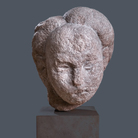 Dal 20 February 2026 al 19 July 2026
Roma | Mercati di Traiano Museo dei Fori Imperiali
Dal 20 February 2026 al 19 July 2026
Roma | Mercati di Traiano Museo dei Fori Imperiali
Constantin Brâncuși. Le origini dell’Infinito
-
 Dal 18 February 2026 al 19 July 2026
Padova | Centro Culturale Altinate | San Gaetano
Dal 18 February 2026 al 19 July 2026
Padova | Centro Culturale Altinate | San Gaetano
M.C. ESCHER. Tutti i capolavori
-
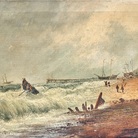 Dal 14 February 2026 al 31 May 2026
Parma | Palazzo Tarasconi
Dal 14 February 2026 al 31 May 2026
Parma | Palazzo Tarasconi
Impressionisti: 100 anni di riflessi. Gli Impressionisti da Monet a Bonnard
-
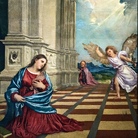 Dal 14 February 2026 al 16 April 2026
Ancona | Pinacoteca Civica Francesco Podesti
Dal 14 February 2026 al 16 April 2026
Ancona | Pinacoteca Civica Francesco Podesti
TIZIANO VECELLIO E LORENZO LOTTO. Due capolavori del Rinascimento alla Pinacoteca Civica di Ancona per due mostre studio
-
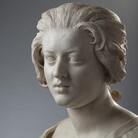 Dal 12 February 2026 al 14 June 2026
Roma | Galleria Nazionale d’Arte Antica in Palazzo Barberini
Dal 12 February 2026 al 14 June 2026
Roma | Galleria Nazionale d’Arte Antica in Palazzo Barberini
BERNINI E I BARBERINI
-
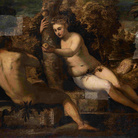 Dal 11 February 2026 al 7 June 2026
Venezia | Gallerie dell’Accademia
Dal 11 February 2026 al 7 June 2026
Venezia | Gallerie dell’Accademia
Tintoretto racconta la genesi. Ricerca, analisi e restauro


